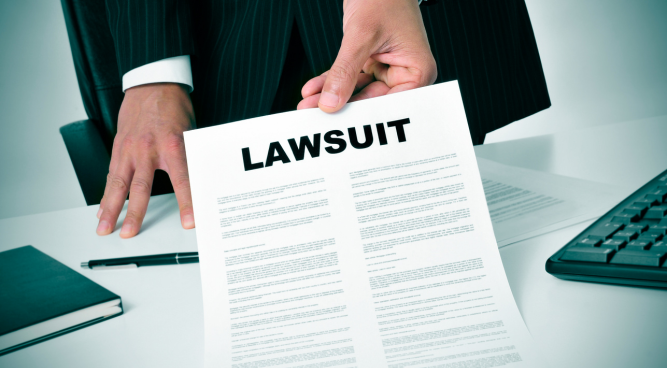Can I sue my employer for a work-related injury -How to Claim Compensation In the UK
Introduction
Personal injury lawsuits are a way for individuals to seek compensation from another group, such as an employer, for causing harm or injury due to negligence or accidents in the workplace. If you have been injured on the assignment due to your employer’s negligence or accident, you may wonder if you can sue your worker for a work-related injury.
To point out a personal injury claim against an employer, consulting with an experienced lawyer or attorney specializing in workplace injury cases is crucial. They can help determine your case worth pursuing and guide you through the legal process.
The eligibility for personal injury benefits and compensation varies depending on the stringency of the injury, company policies, and state laws. A professional attorney can help navigate these complexities and ensure you obtain all the benefits and compensation you are entitled to.
Understanding the Basics of “Can I Sue My Employer for a Work-Related Injury”
Exceptions to Workers’ Compensation Laws
Hirelings are required to provide a safe working environment for their employees. However, accidents can still happen, and employees may suffer work-related injuries. In most cases, workers’ compensation laws protect employers from being sued by their employees. For these, I sue my employer for work-related damage that provides benefits such as medical expenses and lost paychecks to employees who have been injured on the job.
However, there are some irregularities in this rule. If an employer intentionally generates harm to an employee or fails to provide a safe working environment, the employee may be able to sue the employer for damages. For illustration, if an employer knew about a dangerous condition in the workplace but did nothing to fix it and an employee was injured. As a result, the employee may have grounds for a lawsuit.
Consulting with Personal Injury Attorney
If you acknowledge you have been injured due to your employer’s negligence or intentional movements, consulting with an experienced personal injury attorney is indispensable. An attorney can help you resolve whether you have a case against your employer and recommend you through the legal process.
Operating quickly is paramount if you believe you have a case against your employer. There are frequent time limits for filing a lawsuit, and waiting too long could result in losing your right to seek damages. For more about Personal injury worsens over time
Recovering Damages
If you do have a case against your employer, you may be able to recover damages for medical expenses related to your injury. This can include doctor visits, hospital stays, surgeries, medication costs, physical therapy sessions and other related fees.
You may also be capable of recovering lost compensations if your injury has prevented you from working or has limited your ability to work in the future. Suppose your injury has caused pain and suffering or emotional distress that typically affects your quality of life or ability to perform daily activities. In that case, those damages can also be recovered.
Risks Involved
Suing your employer can be complex and challenging, so weighing the potential benefits and risks before proceeding is essential. If you yield your case, you may be responsible for paying your employer’s legal fees. Suing your employer could strain your relationship with them and make it difficult to continue working there.
State Laws Differ: Know Your Rights
Legal Rights and Options for Can I sue my employer for a work-related injury
State Laws Differ: Know Your Rights
Legal rights and options vary by state. Understanding the laws in your state and your legal rights under those laws is essential. Many states have workers’ compensation laws that provide the exclusive remedy for Can I sue my employer for a work-related injury, but exceptions exist.
If you’re considering legal action, it’s essential to consult with a local lawyer who can advise you on the best technique of action based on your circumstances. A regional lawyer will be familiar with the specific laws in your region and can help you navigate the legal system.
Pennsylvania is a sample of a state where Can I sue my employer for work-related damage is typically the only option for employees injured on the job. However, there are exceptions to this rule. For instance, if an employer intentionally causes harm or fails to carry workers’ compensation insurance, a worker may be competent to sue their employer in civil court.
Legal Options Vary by State
It’s important to know that not all states have the same laws regarding whether I can sue my employer for a work-related injury. Some states allow employees more options than others when seeking a settlement for their injuries.
For example, some states allow employees to sue their employers for negligence if they demonstrate that they were to blame for their injury. Other states do not allow these types of lawsuits and instead require employees to file a claim through Can I Sue my Employer for a work-related injury.
Knowing what options are available in your state is crucial when deciding what steps you should take after being injured on the job.
Consulting with a Local Lawyer
If you’re contemplating legal action after a Can I sue my worker for work-related damage, conferring with a local lawyer is essential? A local lawyer will be acquainted with the specific regulations in your state and can help you seek compensation.
They can also help you determine whether filing a claim through workers’ compensation or pursuing legal action in civil court is the best course based on your circumstances.
Having Access to Civil Courts and Can I sue my employer for a work-related injury?
In some states, employees may have access to civil court if injured. This can provide more options for seeking compensation than Can I sue my employer for a work-related injury alone.
For example, in Pennsylvania, an employee may sue their employer in civil court if their employer intentionally caused harm or failed to carry. Can I sue my worker for work-related damage?
It’s important to note that pursuing legal action in civil court can be a lengthy and expensive process. Consulting with a local lawyer can help determine whether this option is in your best interests based on your circumstances. Do visit my blog
No Workers’ Compensation Insurance: What Are Your Options?
Legal Action Against Employers Without Can I sue my employer for a work-related injury
The employer must provide workers’ compensation insurance when an employee is injured. However, not all employers comply with this requirement. In such cases, if wounded, Can I sue my employer for a work-related injury may have limited options for compensation coverage. One option is to take legal action against their employer.
Employers who do not provide Can I sue my employer for a work-related injury may be liable for work-related injuries through legal action. This means the injured worker can sue their employer for damages related to their injury, including medical expenses and lost wages. However, suing an employer can be a complicated and time-consuming methodology that requires the assistance of an experienced attorney.
Obtaining Workers’ Compensation Benefits Through State Systems
Injured workers may need to obtain Can I sue my worker for a work-related injury in UK benefits through their state’s workers’ compensation system if their employer does not provide coverage. Each condition has its system for handling workers’ comp claims, so injured workers need to understand the laws in their state.
Workers’ compensation benefits can include disability benefits, medical care, and lost wages. Disability benefits are paid out when an employer cannot produce to work due to an injury. Medical care covers the cost of treatment related to the injury. Lost wages compensate employees for the income they would have accepted if not damaged.
Collecting Workers’ Compensation Benefits From Employer’s Insurance Company
Injured workers may also be able to collect Can I sue my employer for a work-related injury in the UK benefits from their employer’s insurance company even if the employer does not provide coverage directly. This typically occurs when an employer contracts with a third-party insurer or when a self-insured employer purchases excess insurance coverage.
Injured employees must report their injury as soon as practicable and file a claim with the state system and the employer’s insurance company if applicable. Delinquency to do so could result in a denial of benefits.
Third-Party Claims: What Are They and How to Pursue Them
When you are harmed at work, you typically file a Can I sue my employer for a work-related injury to receive benefits such as medical expenses and lost wages? However, there may be situations where individual other than your employer is accountable for your harm. In these possibilities, you may be able to pursue a third-party claim in addition to filing a workers’ comp claim.
What Are Third-Party Claims?
Third-party claims are legal actions against someone other than your employer who may have caused or contributed to your Can I sue my employer for a work-related injury in the UK? For example, if you were impaired in a car misfortune while driving for work purposes and the other motorist was at fault, you could potentially pursue a third-party claim against that driver.
Why Pursue Third-Party Claims?
They pursue a third party centrally, resulting in higher initial damages such as medical bills, lost wages, and pain and suffering. While workers’ comp benefits cover certain expenses related to your injury, they do not typcompensatensation for pain and suffering.
How to Pursue Third-Party Claims
Evidence demonstrating the other person’s negligence or liability is essential to pursue a third-party claim. This can include witness statements, photographs of the accident or injury scene, police report if applicable, and any relevant medical records. It is also vital to confer with a personal injury attorney who offers free claim assessmofferingng quickly when pursuing a third-party claim is crucial because there may be time limitations for filing a claim. In some states, there is only a limited quantity of time after an injury occurs, during which you can file a case against the responsible party.
Seeking Full Compensation in California
Filing a Compensation Claim in California
California law gives employees the right to file a companion m. Can I sue my worker for a work-related injury in the UK? This comp injury ensures that employees receive total compensation for their medical expenditures, lost wages, and other related costs. Hiring an experienced local attorney who can handle your case efficiently is essential to file a compensation claim.
Medical Evaluation and Documentation
To ensure a fair settlement, it is crucial to undergo a comprehensive medical evaluation and provide all necessary documentation to support the compensation claim. The medical examination should be conducted by a qualified physician specializing in Can I sue my employer for a work-related injury in the UK? The physician will even the extent of your damage and provide an accurate diagnosis.
Documentation is also critical when filing a compensation claim. You must keep track of all medical bills, receipts, and other documents related to your injury. These documents will help support your case and ensure that you receive maximum compensation benefits.
Maximum Compensation Benefits
The California Workers’ Compensation Law provides maximum compensation benefits for work-related injuries. These benefits enclose:
- Clinical Costs: All sensible and essential clinical treatment costs are covered under this advantage.
- Impermanent Handicap Advantages: If you can’t perform because of your injury, you might be qualified for brief incapacity benefits.Permanent Incapacity Advantages: Assuming your physical issue brings about the long-lasting inability or hindrance, youqualifygibendlessrmanent handicap benefits.
- Professional Restoration Advantages: Professional recovery advantages might be accessible if you can’t get back to your past occupation because of your physical issue.
- Demise Advantages: In the sad situation of death, Could I at any point sue my boss for a business-related the ury in the UK? Passing advantages are given.
- Clinical Costs: All sensible and essential clinical treatment costs are covered under this advantage.
- Brief Incapacity Advantages: If you can’t work because of your physical issue, you might be qualified for impermanent handicap benefits.
- Long-lasting Handicap Advantages: If your physical issue brings about long-lasting incapacity or impedance, you might be qualified for perpetual inability benefits.
- Professional Restoration Advantages: Professional recovery advantages might be accessible if you can’t get back to your past occupation because of your physical issue.
- Demise Advantages: In the lamentable occasion of death due, to Could I at any point sue my boss for a business-related injury in the UK, passing advantages might be given.
Punitive Damages
In some cases, punitive injuries may also be awarded along with the above-mentioned maximum compensation benefits. Retributive damages are awarded when there has been gross negligence or calculated harm by the employer or any third player involved in the incident leading up to the injury.
Keeping Track of Your Injury-Related Losses
Tracking Your Losses After a, Can I sue my employer for a work-related injury in the UK
Financial losses, related losses, and damages are expected after a Can I sue my employer for a work-related injury in the UK? Keeping track of all these losses and damages is essential if you decide to pursue legal action against your employer. This section will discuss how to document your injury-related losses and why it’s necessary.
Lost Wages
One of the most significant financial losses that can arise from an injury is lost wages. You may be authorized to compensate for lost wages if you can’t work due to injury. To document your lost wages accurately, keep track of the hours you missed at work and of the payment you would have earned during that time. If possible, obtain written documentation from your employer confirming the number of hours cut and the hourly pay rate.
Medical Expenses
Documenting medical expenses such as medical bills is another critical aspect of tracking your injury-related losses. Keep all receipts for medical treatment related to your injuries or illnesses. This includes doctor visits, hospital stays, prescription medications, physical therapy sessions, and any other medicines or procedures required due to your injury.
Suffering Damages
In addition to financial losses such as lost wages and medical expenses, it’s also crucial to document suffering damages such as pain and illness resulting from the injury. These damages can include physical pain or emotional distress caused by the accident or its aftermath. Documenting these types of damages can help support a claim for compensation beyond just economic damages.
Economic Damages
Economic damages refer to expenses incurred because of an injury that has long-term effects on a person’s ability to earn income or perform daily activities independently. These costs can include ongoing medical treatment or permanent disability expenses arising from an accident at work.
Latent Injuries
It’s also essential to consider immediate and latent injuries that may not become apparent later. Documenting these injuries can help support a claim for compensation if they arise.
Can You Sue Your Employer for Can I sue my worker for a work-related injury in the UK?
Exceptions to Employer Immunity: Intentional Harm or Gross Negligence
While workers’ compensation benefits are typically the only recourse for employees who suffer a workplace injury, certain exceptions to employer immunity allow injured workers to file a personal damage case against their employers. One such exception is intentional harm or gross negligence on the employer’s part. If an employer intentionally causdamagearm to an employee, or if their actions amount to gross negligence, then the worker may be competent to sue their employer for impairments in addition to receiving workers’ compensation benefits.
Intentional harm occurs when an employer deliberately causes damage to an employee. This can include physical violence, sexual assault, or harassment. In such circumstances, the injured worker may be capable of suing their employer for damages related to medical expenditures, lost wages, and emotional distress damages.
Gross negligence occurs when an employer’s actions fall far below what would be considered reasonable. For instance, if an employer fails to provide proper safety equipment or training, resulting in a severe injury, they may be liable for gross negligence. In these cases, injured employees may also be able to recover emotional distress damages and compensatory damages.
Consulting with a Can I sue my employer for a work-related injury in the UK
Suppose you have suffered a work-related injury and believe your employer’s actions were intentional or amounted to gross negligence. In that case, you must consult a knowledgeable work injury lawyer who can estimate your case and advise you on your legal options. The employer for a work-related injury in the UK lawyer will be able to assess whether I have an environment for a personal injury lawsuit against my employer and help me navigate the complex legal process involved in pursuing such a claim.
Compensatory Damages and Emotional Distress Damages
Injured employees who successfully file a personal injury lawsuit against their employers may be entitled to compensatory damages related to medical expenses, lost wages, and emotional distress damages. Emotional distress damages are intended to compensate the injured worker for the emotional impact of their injury, such as unhappiness, anxiety, and post-traumatic stress disorder.
It is essential to mention that emotional distress impairments can be challenging to prove in court. To recover these damages, an injured employee must demonstrate that they suffered a severe psychological injury to their workplace injury. This may require expert testimony from mental health professionals or other medical experts.
Wrapping Up “Can I Sue My Employer for a Work-Related Injury”
if you wonder whether you can sue your employer for a work-related injury, the answer is not straightforward. It depends on factors such as state laws, whether I can sue my employer for a work-related injury in the UK coverage, and the circumstances surrounding my case.
While some states allow employees to sue their employers for workplace injuries under certain conditions, others have an exclusive remedy provision that limits legal action against employers. If your employer has employer’s compensation insurance, you may need to pursue benefits through that system rather than filing a lawsuit.
However, in cases where a third party caused or contributed to your injury while on the appointment, you may be able to pursue a personal injury claim against them. This can result in additional compensation beyond what is available through workers’ comp.
Regardless of your path, keeping track of all losses related to your injury and seeking legal recommendations from an experienced attorney is essential. Can I sue my employer for work-related injury cases? They can conduct you through the process and protect your rights.




